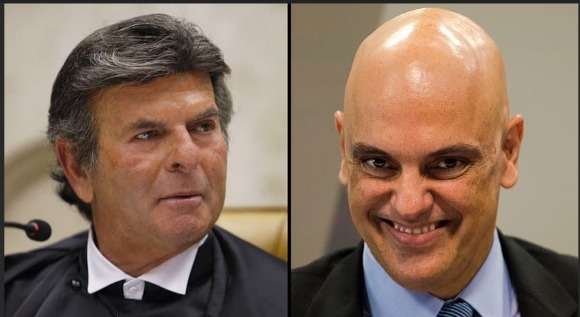During a session at the Federal Supreme Court (STF), Minister Luiz Fux made a statement that reignited the debate over institutional impartiality in handling requests for electoral audits. Fux recalled that in 2014, the PSDB requested an audit of the presidential election results — won by Dilma Rousseff — and the Superior Electoral Court (TSE) allowed the process without imposing sanctions or fines on the party.
The minister emphasized that at the time, the TSE acted “wisely” by authorizing the audit, reinforcing the transparency of the electoral system and respecting the parties’ right to oversight. In contrast, Fux mentioned the 2022 case, when the PL, Jair Bolsonaro’s party, also requested an audit of the election results. In this case, the TSE rejected the request and imposed a fine of R$ 22.9 million, citing bad faith and an attempt to undermine democracy.
Fux’s speech was a reminder of a critical fact concerning Minister Alexandre de Moraes, sanctioned under the Magnitsky Act for human rights violations, who in 2022 was president of the TSE, and who was affiliated with the PSDB between 2015 and 2017. By comparing the two episodes, Fux raised questions about institutional fairness, the freedom of electoral oversight, and political-party treatment within the higher courts.
MORE ABOUT:Brazil’s president’s party accuses Israel of “genocide” and does not criticize Hamas
Repercussions and legal debate
Jurists and political commentators point out that Fux’s statement indicates internal flaws in the STF regarding the handling of cases related to the 2022 elections with persecution of Bolsonaro. The comparison shows that the Court acted politically and did not uphold transparency and the presumption of doubt in electoral disputes and in guaranteeing party rights. For experts, Fux’s statement is a validation of the criticism of Moraes’ actions.









